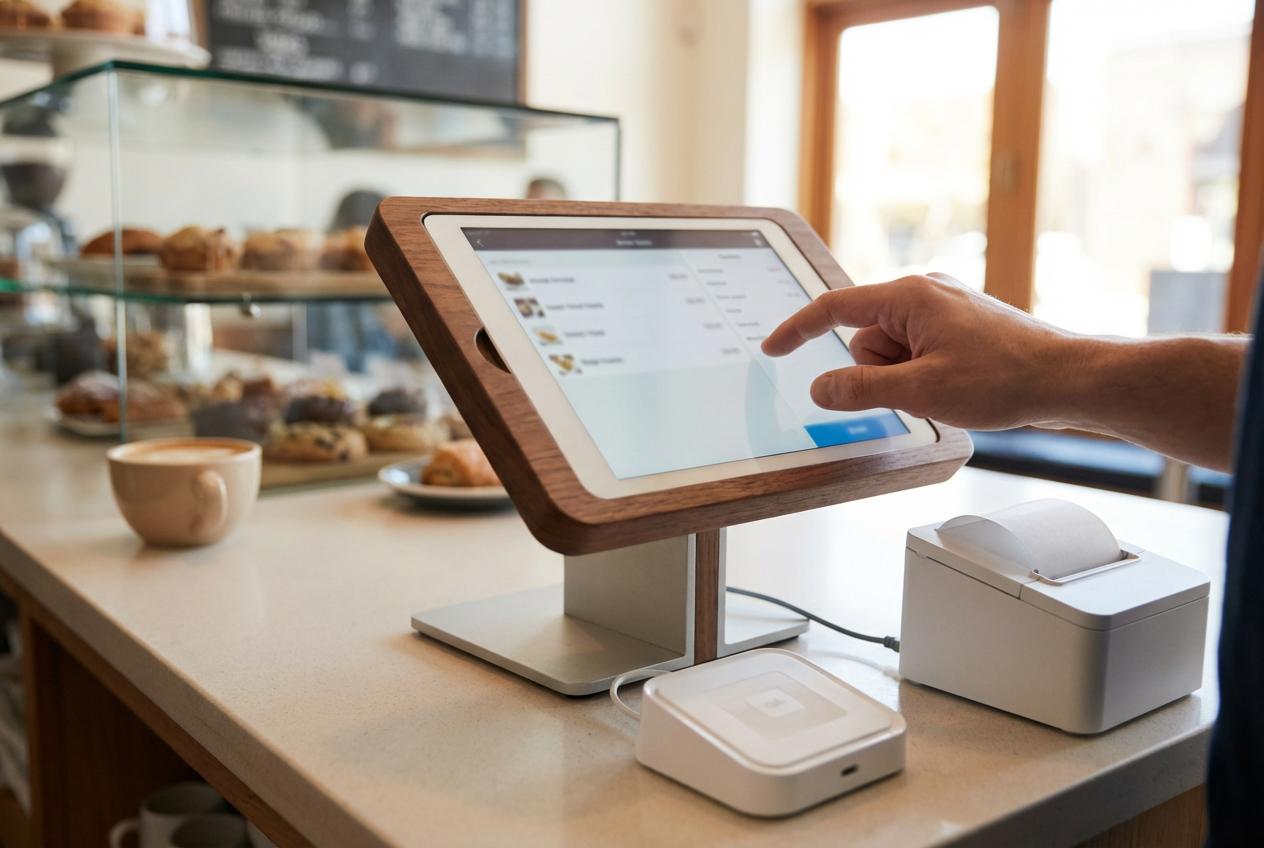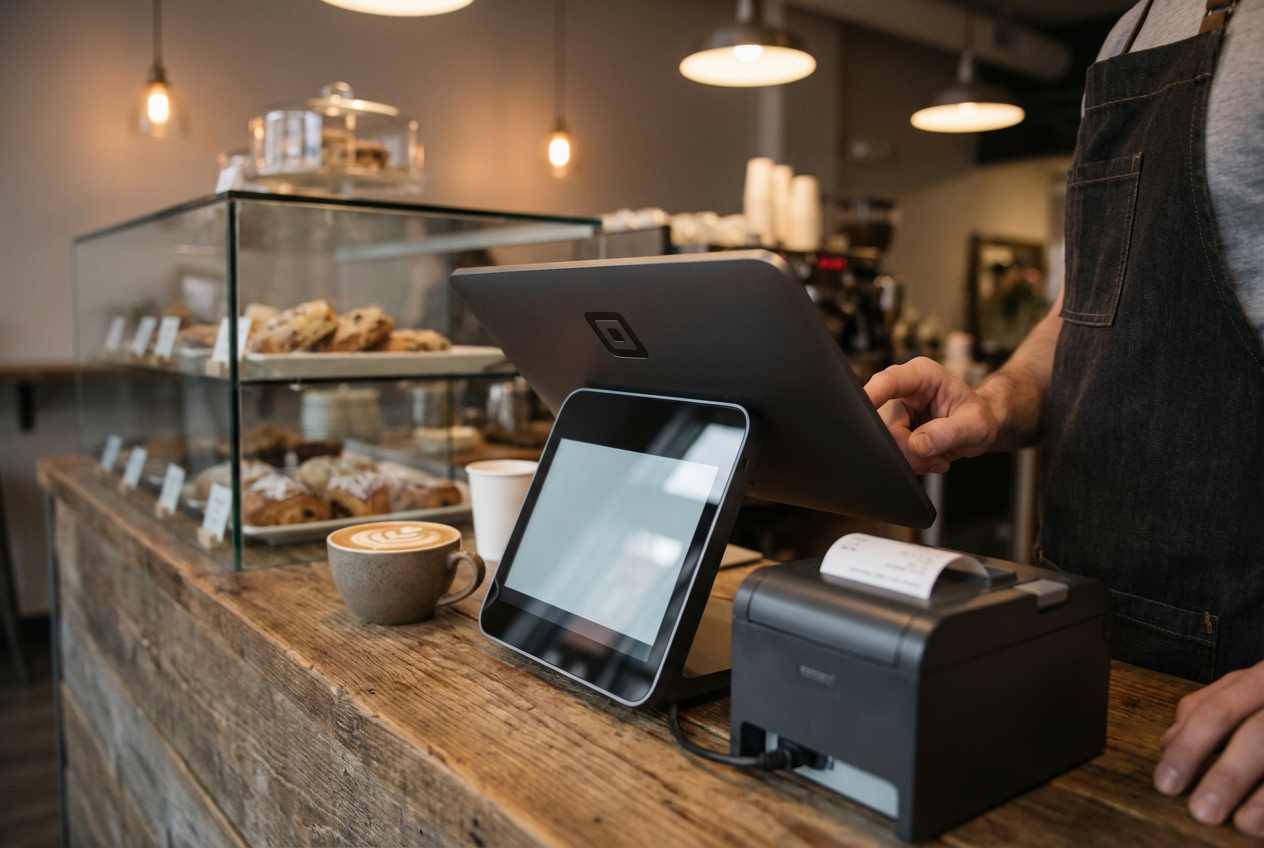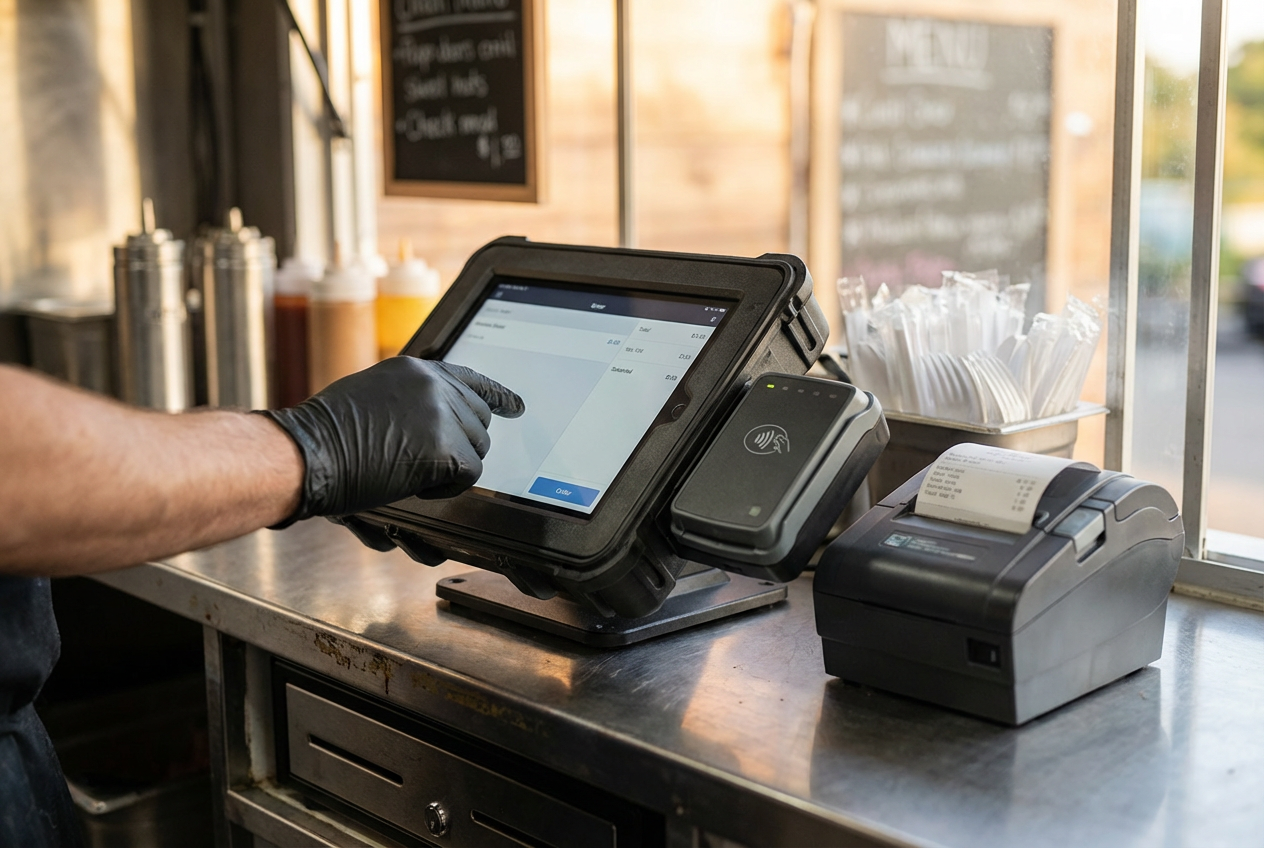Point of Sale (POS) systems have evolved far beyond simple cash registers. In South Africa, these tools have become vital for businesses looking to streamline operations, manage sales, and offer seamless customer experiences. With rising digital adoption, mobile payments, and demand for omnichannel retail, POS systems in South Africa are at the center of retail innovation.
Whether you’re a small business owner, an eCommerce startup, or a franchise operator, this guide covers everything you need to know about POS systems in South Africa in 2026.
Why POS Systems Are Crucial in South Africa
South Africa’s economy, driven heavily by small to medium enterprises (SMEs), is undergoing digital transformation. According to Stats SA, SMEs represent over 98% of all businesses and contribute about 40% of the GDP. With that in mind, adopting modern tools like POS systems is not just beneficial—it’s essential.
Key reasons South African businesses need POS systems:
- Real-time sales tracking
- Inventory management
- Integrated payments (cards, QR, EFT)
- Reporting and analytics
- Multi-location and staff management
- Compliance with VAT and local regulations
Types of POS Systems Available in South Africa
Cloud-Based POS
Cloud POS systems store data online, allowing remote access from any device.
Benefits:
- Scalability for growing businesses
- Real-time syncing across devices
- Access data anywhere, anytime
Popular providers: ConnectPOS, iKhokha POS, POSist
Mobile POS (mPOS)
Mobile POS uses smartphones or tablets paired with card readers, ideal for vendors, delivery drivers, or pop-up shops.
Benefits:
- Affordable and portable
- Great for SMEs and informal businesses
- No long-term contracts
Popular providers: Yoco, iKhokha, YOCO Neo
►►► Optimal solution set for businesses: Multi store POS, Next-gen POS, Inventory Management Software (MSI), Self Service, Automation, Backorders

On-Premise POS
Traditional systems installed on local servers, used mainly by large retail chains.
Benefits:
- Complete control over infrastructure
- Works well with poor internet if offline mode is available
Popular providers: Pilot POS, GAAP POS
Top POS Providers in South Africa (2026 Edition)
Yoco
Best for: Startups and mobile vendors
Strengths:
- Plug-and-play card machines
- No monthly fees
- Integrated app for sales tracking
- Short-term working capital offers
iKhokha
Best for: SMEs and growing retailers
Strengths:
- Affordable hardware bundles
- Card acceptance + additional features (airtime sales, bill payments)
- Financing options
ConnectPOS
Best for: Multi-store retailers and eCommerce brands
Strengths:
- Cloud-based with native Magento integration
- Advanced reporting and inventory tools
- Omnichannel sync with platforms like Shopify and WooCommerce
Pilot POS
Best for: Restaurants and franchises
Strengths:
- Menu and table management
- Kitchen integration
- Strong support and local presence
GAAP POS
Best for: Hospitality and quick-service chains
Strengths:
- Custom hardware/software options
- Real-time analytics and loyalty programs
- Strong network in South African hospitality
POSist
Best for: Fast-food and cloud kitchen businesses
Strengths:
- Cloud-based
- CRM and delivery integrations
- Kitchen Display System (KDS)
POS Feature Checklist for South African Businesses
Before choosing a POS system, assess your business needs. Key features to look for include:
| Feature | Importance |
|---|---|
| VAT Calculation | Compliant billing with 15% VAT |
| Offline Capability | Operate during load shedding |
| Payment Integration | Card machines, SnapScan, Zapper |
| Multi-location Sync | Manage multiple stores |
| Inventory Management | Track product levels |
| Staff Management | Track sales by employee |
| eCommerce Sync | Integrate with online stores |
| Cloud Access | Access reports on the go |
| Loyalty Programs | Reward frequent customers |
South African Payment Trends Shaping POS Adoption
Digital payments are rising fast in South Africa. According to the SARB, contactless payments and QR-based transactions have surged post-2020.
Popular Payment Methods Supported by POS Systems
- Debit/Credit Cards (Visa, MasterCard)
- SnapScan and Zapper
- Instant EFTs (Ozow, PayFast)
- Tap-to-pay (NFC)
- Mobile wallets (Apple Pay, Samsung Pay)
As fintech adoption grows, modern POS systems must support a wide variety of payment options to avoid lost sales.
Industry-Specific Use Cases
Retail (Clothing, Electronics, Grocery)
- Integrated barcodes and product lookups
- Promotion and discount features
- Inventory alerts
Food and Beverage (Restaurants, Cafes, Fast Food)
- Table and kitchen management
- Split bills and tipping
- Delivery integrations
Mobile Vendors and Informal Traders
- Lightweight mPOS devices
- QR code payments
- Offline mode during poor connectivity
Key Challenges for POS in South Africa
While the market is evolving, local businesses still face several challenges:
- Load Shedding: Power outages demand POS systems with offline mode and battery backup.
- Connectivity Gaps: Rural areas may struggle with real-time cloud sync.
- Initial Costs: Some providers require hardware purchases or subscription fees.
- Training and Support: SMEs may lack the technical know-how without proper onboarding.
Tips for Choosing the Right POS System in South Africa
- Start with Your Business Model
A retail business will need barcode scanners and stock control; a café might need table tracking and kitchen displays. - Consider Offline Capabilities
Ensure the system can run during load shedding or internet disruptions. - Integrate with Payments
Choose a POS that connects seamlessly with SnapScan, Yoco, Zapper, and card machines. - Ask About Support
Is local support available? What’s the SLA? Can you reach them during load shedding or weekends? - Request a Demo
Many providers offer free trials—test how the system works before you commit.
Government and SME Support for POS Adoption
South Africa’s Department of Small Business Development and entities like the Small Enterprise Development Agency (SEDA) often promote digital tools, such as point-of-sale (POS) systems. Financial inclusion efforts are also making it easier for informal businesses to adopt digital payments, thanks to affordable options from local fintech players.
What to Expect in the Future of POS in South Africa
The POS industry in South Africa is gearing up for an exciting future marked by:
- AI-Powered Insights: Smart dashboards for inventory forecasting and customer targeting.
- Biometric POS Access: Secure staff login and payments via fingerprints or facial recognition.
- POS-as-a-Service (PaaS): Subscription-based models with full hardware/software bundling.
- Unified Commerce: Total syncing of online and offline inventory and sales.
As both consumers and businesses become more digital, POS systems will increasingly be the command center for operations, analytics, and customer engagement.
Final Thoughts
South Africa’s POS landscape is diverse, competitive, and evolving fast. From compact mPOS devices for informal traders to cloud-based systems for multi-store franchises, the choices have never been broader. But choosing the right POS requires more than picking a popular brand—it’s about finding the system that aligns with your business goals, budget, and day-to-day operations.
As we move further into 2026, investing in a scalable, user-friendly POS system will not only keep your business efficient but also future-ready.
Looking for a trusted, Magento-native POS provider?
ConnectPOS offers robust cloud-based POS solutions tailored for retail, e-commerce, and omnichannel operations—perfect for businesses in South Africa seeking growth and efficiency.
Contact ConnectPOS: [email protected]
Website: https://www.connectpos.com/
Start your POS transformation today with a free demo or consultation.
►►► Optimal solution set for businesses: Shopify POS, Magento POS, BigCommerce POS, WooCommerce POS, NetSuite POS, E-Commerce POS




